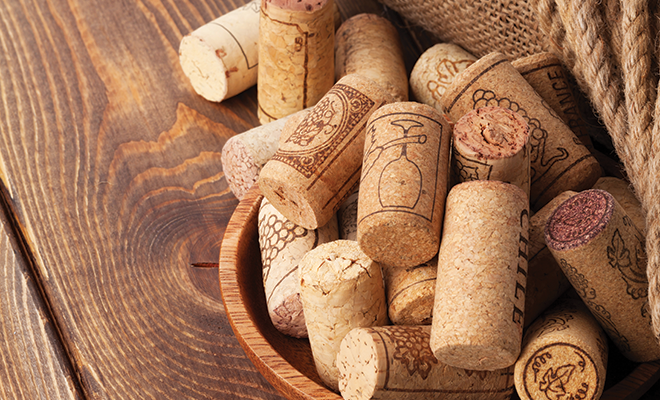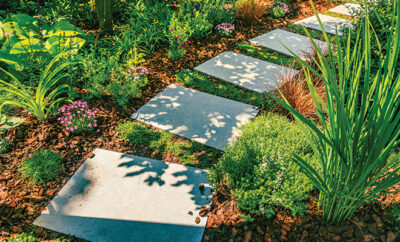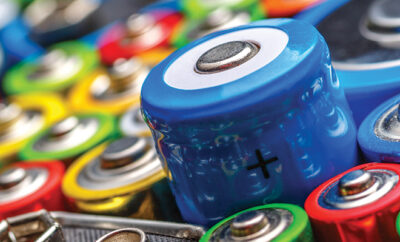
Pop Your (Natural) Cork
Did you know that by sinking a corkscrew into the top of your favorite bottle of wine and hearing the ever so comforting “pop!” as it opens, you are helping to better the environment and fight climate change? Besides enjoying the beverage’s anti-aging and health-benefiting properties, opening a bottle of wine that is sealed with an organic cork stopper is an easy way to live a little greener.
Wine bottle stoppers made from natural cork are a biodegradable product that is harvested in a way that supports the environment and helps eliminate greenhouse gases. Natural cork is also good for wine. It allows wine to breathe, positively affecting the taste, and represents value and sophistication. But, despite these great excuses to enjoy another glass (not that you need one), some wineries are switching from organic cork stoppers to synthetic, plastic corks in order to save money. While this trend may be a smart commercial move for wine makers, it may ultimately be harmful to nature.
Natural cork stoppers are made from the stripped bark of cork oak trees, which are found primarily in Portugal and the Mediterranean. While this may sound like a destructive practice, the tree itself is not harmed in any way because they are harvested instead of cut down. Cork oak trees can be stripped or harvested every 9 to 12 years. This time period allows the bark to regrow and, while doing so, absorb three to five times more carbon dioxide in the air than non-harvested trees. Therefore, harvesting cork helps to reduce greenhouse gases that destroy the ozone layer and contribute to climate change. Cork oak trees also have very long life spans, lasting from 100 to 300 years, making the natural cork used in wine bottles a completely renewable and sustainable material.
Once the tree is harvested, the cork stoppers are made from the bark simply by being punched out, similar to using cookie cutters in dough, and finally washed. This practice takes little energy and does not require or produce toxic chemicals or waste.
Despite the natural and environmentally friendly harvest and manufacturing of organic cork stoppers, some members of the wine industry have begun to explore alternatives seals. Fear of trichloroanisole (TCA), commonly known as wine taint, has caused some wineries to experiment with synthetic cork stoppers made from plastic. TCA is a natural compound caused by using organic cork to seal bottles. While wine taint is not harmful to the drinker, it does affect the taste of the wine, making it musty or “corked.”
Because synthetic cork does not produce TCA and also costs less than organic cork, a few wine makers have begun to use them to seal their wine. But, artificial cork has not overtaken the wine industry for a number of reasons.
First, synthetic stoppers are commonly believed to represent lower quality wine. According to a study conducted by Tragon Corporation in 2014, 93 percent of American wine consumers associate natural cork with higher-quality wine compared to wines with screw caps or plastic corks. Plastic closures are also viewed as less appropriate for special occasions or dining.
Second, they do not function as efficiently as natural cork. Artificial plastic corks do not provide as tight a seal in the bottle as natural cork. For this reason, they are used primarily for wine intended to be consumed within five years or less. Synthetic stoppers also expand upon removal, making it almost impossible to reseal the bottle it came from.
And finally, plastic screw caps and synthetic cork stoppers are not good for the environment. They are non-recyclable in most places, meaning upon disposal they travel from the trash can into landfills. They also require at least five times more energy than natural cork to produce.
Natural cork, on the other hand, can be composted or recycled without any toxic waste. Or, if you enjoy crafting, the corks can be used to make a number of cute do-it-yourself decorations or gifts for fellow wine lovers. Items range from coasters, place card holders and candles to cork wreaths and large letters for initials made from wine corks. Pinterest and Buzzfeed offer a number of easy, inexpensive craft ideas made primarily from recycled cork stoppers to make sure that your wine corks don’t go to waste.
Natural cork is good for both wine drinkers and the environmentally friendly individual. Just by choosing to drink wine with an organic, natural cork stopper, you can help eliminate carbon dioxide in the atmosphere, reduce your impact on climate change, and keep waste out of landfills and oceans.
Now, this news calls for celebration! Enjoy some wine from a bottle with a natural cork closure, because it’s good for the environment and good for wine. HLM
Sources: energy.gov, epa.gov, forbes.com and michaelbluejay.com.







